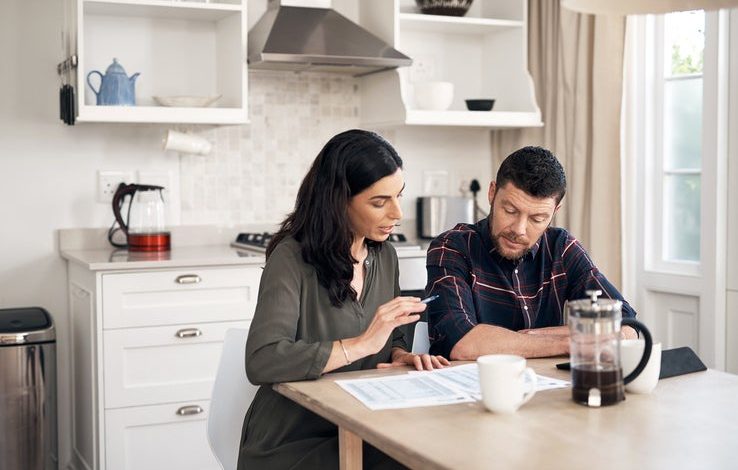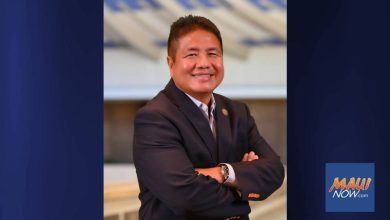This Is the Type of Financial Advice Every Woman Should Ignore

[ad_1]
True financial independence for women is sadly a pretty new development in the U.S. For example, we could be legally discriminated against based on sex when we applied for credit until the passage of the Equal Credit Opportunity Act (ECOA) in 1974. Bank accounts for women have a storied and colorful history, and have technically existed for longer than the ECOA, but again, it wasn’t until the passage of this landmark legislation that we could be assured of being allowed to manage our own money with a bank account.
Despite our struggles and how far we’ve come, a lot of otherwise sensible and well-meaning individuals will tell you that when you partner up with someone, you have to combine all your finances. Far be it from me to tell other women what’s best for them, but honestly, it’s extremely important to control at least some of your own money. Here’s why you should skip fully combining all of your finances with a partner.
A tale from my own past
I have been married and divorced twice, and as such, I’ve got some history of combining finances with partners. I’ve never shared a bank account with anyone, but I have had my checking account linked to another person’s, enabling us to see each other’s spending activities.
This made it easy to transfer money back and forth for bills, but when we split up, my spending wasn’t private until I could find the time to get in touch with the bank and have the accounts unlinked. Lesson learned. Financial privacy is an important component of adulthood, and I definitely didn’t need to get an earful from someone I was divorcing about how I spent my own money.
The second time I got married, we only combined finances to a minimal degree. We were on the same auto insurance policy for our two cars, but while we had bank accounts at the same bank, they were in no way linked. We managed shared bills by transferring money to each other (instant, since we used the same bank). When we divorced, there was no issue with maintaining privacy about spending.
What are the other risks of sharing access to all your money?
Combining your entire financial life with a romantic partner comes with potentially very dangerous pitfalls. It’s an unfortunate fact that 1 in 4 women experience severe abuse from an intimate partner, per the National Coalition Against Domestic Violence (NCADV), and intimate partner violence also often includes a financial component.
Featured offer: save money while you pay off debt with one of these top-rated balance transfer credit cards
Financial abuse occurs when an intimate partner asserts control over your finances, such as by taking away your access to money or a job. NCADV found that 94% to 99% of domestic violence victims also experience economic abuse. It’s easy to think you won’t be a victim or your relationship won’t come to an end, and so it’s okay to give someone else access to all your money. But this could prove to be an expensive and devastating mistake. If you are in a violent relationship and lack the resources to escape, you could be trapped in that situation.
How do you manage money with a partner?
All of this brings us to the question of how best to share finances with a partner. It might be unrealistic to expect that you will each entirely handle all of your own financial concerns, especially if you own property or have children together. So here are a few tips:
- Consider a joint account you manage together: All I’m saying here is that you shouldn’t relinquish control of all of your money to a partner. But a shared checking account can be a great way to manage the bills you both contribute money to. Each of you can deposit or transfer your portion of the bills to this shared account, and then pay them from it.
- Keep your own accounts as well: You should also maintain your own checking, savings, and other accounts of your very own. That way, you can stay on track with saving for retirement and other goals and paying your own personal bills.
I wish we lived in a world where we as women didn’t have to be this concerned about our safety and access to financial resources, but this is the reality we have. It’s important to look out for each other as well as ourselves. If you’re experiencing abuse, contact the National Domestic Violence Hotline on its website or by calling 1-800-799-SAFE (7233). And no matter your relationship and its unique qualities, always maintain control over at least some of your own money.
These savings accounts are FDIC insured and could earn you 11x your bank
Many people are missing out on guaranteed returns as their money languishes in a big bank savings account earning next to no interest. Our picks of the best online savings accounts can earn you 11x the national average savings account rate. Click here to uncover the best-in-class picks that landed a spot on our shortlist of the best savings accounts for 2023.
[ad_2]




